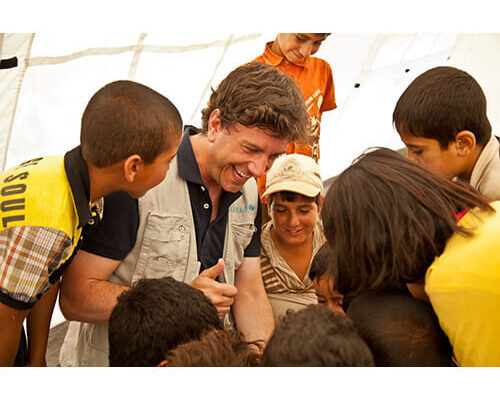
It is through music that West met Middle-East in Italian island of Ischia: Syrian violinist Mayas Alyamani and London’s un-conducted string orchestra 12ensemble performed together in a solidarity concert.
The successful event was organized by EMMA for Peace, in collaboration with UNICEF Italia and William Walton Foundation, to support Syrian children affected by war.
We asked Andrea Iacomini, UNICEF Italia Spokesperson, to explain us which are the main difficulties that Syrian children have to face and how is UNICEF helping them.
He kindly answered us: “Syrian conflict is one of the most brutal of the last decades. Children have to face unknown threats and dangers, from both physical and emotional point of view. Moreover, risks and difficulties do not stop once the refugees manage to get to a refugees shelter. The latter may represent safeness from the lethal danger of war, but it may never be a place where a child can live happily for long time. UNICEF undertook one of its widest humanitarian operations in Syria, Jordan, Lebanon, Iraq, Turkey and Egypt, where it guarantees life and health assistance by giving people food, water, hygiene, education and protection for children.”
Indeed, according to the Convention on the Rights of the Child, children have the right to life, survival and development.
This is why we asked Mr. Iacomini to what extent EMMA for Peace and their artistic workshop projects may influence children lives.
He replied: “It is known that the Convention on the Rights on the Child has being ratifying fundamental childhood rights since 1989, and it is a reference point for every UNICEF activity, always and everywhere. Nevertheless, we also know that children do not only need to survive and grow up healthily. In order to develop their real potential, the Convention underlines that they have the right to rest and free time, to play and do recreative activities typical of their age and freely participating in cultural and artistic initiatives. I believe that EMMA for Peace may give an important contribute in this way: sometimes there is nothing more effective than artistic language (such as the one of theatre, music, painting) to deal with traumatic experiences, to facilitate dialogue, to develop empathy and the ability to understand.”